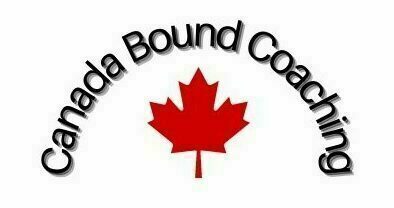Inside: Best tips on how to choose your school in Canada to help you find the legitimate one.
When you come to Canada to study, you have a choice to invest in quality and meaningful education.
We at Canada bound coaching offers some advice based on our experience and knowledge.
How to find out about a school
When choosing a school, whether it’s a college or university, before making decisions and paying fees, please consult this site.
Once you are on this website, click on Education then scroll down to Directory of Educational Institutions in Canada. When you click on this directory, you can type in the name of the school you are applying for, or which has been offered to you, or is trying to “recruit” you. It’s important to check two columns: the “Sector” and the “Legal Status”.
If the Sector says: Public, and the Legal status says: Recognized, then yes, you are applying to what we may call a legitimate school. “Recognized” means it is not only recognized by the Canadian government, and other countries, it is, most importantly, recognized by employers.
After all, when you graduate, you will apply for jobs. Employers, especially big, private or government employers in Canada and elsewhere, will recognize your diploma and hire you if you also meet other qualifications.
Public vs. Private in context
In Canada, when a post-secondary school is labeled “public”, it’s because it receives funding from the government.
In the Philippines, we are used to the idea of a “public” school being not as good as the “private” school. Not in Canada. It’s quite the opposite in the context of funding source. Canada funds schools in a way that’s different from how Philippine government funds schools.
The Canadian government has huge funds and more resources provided to schools to maintain world standards of high quality and competitive education. Schools in Canada that receive funding from government therefore, are of better standing and offer quality education.
Post-secondary means post high school or after high school, thus the college or university levels.
Beware of schools labeled as “for profit” and “registered”
When you’ve entered the name of the school in this directory using the above link, and the Sector says: For Profit and the Legal status says: Registered, this is not good news. This means that the school is smaller, has little or no funding from government, and relies on fees from students to earn profit and pay their instructors.
You want to steer clear or stay away from these schools. Most of the time, the quality of education you will get will also not be comparable to the schools that have the Recognized status and belong to the Public sector.
Employers don’t usually give value to the education and training you will obtain from these schools and will have second thoughts in inviting you for job interviews. In short, your money and time will not be worth it. Likewise, it’s a waste of money and time.
Few other schools fall under the sector of Public/Non-Profit and with the legal status of Authorized. Example, a theological school, is in this category. You may consider this school if you’re desperate, but our advice is to also avoid these places if the program or course is also being offered in the recognized and public college or university.
Related post: Student Visa : Flashback 1996
Quick admission is a flag
Another way to find out that your school is undesirable and questionable is when it quickly issues an acceptance or admission letter to you. Remember that these colleges or universities are for profit, not recognized but registered with the government, so they are trying to get as many students as they can.
Letters of Admission or Acceptance coming from these schools may also turn out to be fake. When the government finds out that your admission or acceptance was falsified, this can cause your deportation from Canada.
Another reason to avoid the unheard-of, “for profit” and “registered” institutions of learning. They’re not institutions, but maybe fly-by-night operations.
English Proficiency is Waived
Issuing the admission or acceptance letter usually comes with passing a TOEFL or IELTS (English proficiency exams) and other requirements. If the school you’re considering is not requiring any English proficiency exam, then they are in the business of mainly making money and only recruiting as many students as they can.
They don’t maintain the standards that are required by Canada and other countries for post-secondary education. This may be okay to some people, but in the long term, it’s better and it’s to your benefit if your proficiency in English was tested and you passed.
CIC website list of schools
Some people will use the list of Canadian schools or academic institutions found on the CIC website (CIC stands for Canadian Immigration and Citizenship). Our group does not recommend this because that list or directory will include all schools, and does not clearly identify which ones are Public, and Recognized. Remember, you want to be in a public and recognized school.
Beware of the schools that are “For Profit”, “Registered” and “Authorized”. Many of these are operated by private person(s) who may not be serious nor care about your future. In fact, some of them have victimized poor students from some countries.
The Canadian government have been “… “…cracking down on these schools but doesn’t always lead to them shutting down. These are elusive beasts, changing names and locations and sometimes existing only on the Wild West of the Internet”, according to Mac leans magazine.
Some schools are also unlicensed, which may mean they are not registered, or their registration has expired. As reported by The Toronto Star some years ago, “…just 10 inspectors are tasked with the job of policing the 445 licensed schools across Ontario, with enrollment of about 27,000 students. Those same inspectors are also responsible for unlicensed schools that number 1,000 or more.”
Best Advice
Therefore, stay vigilant and be careful in choosing your school before you proceed to study in Canada. That way, you are sure that what you paid for is worth it and your probability of employment later is better. As well, more chances of getting the permanent residency if you plan to stay after graduation.
Good luck!
For more information, please contact the Canada Bound Coaching Group.
Meet your coaches here.
Watch this interview about looking for a good school and applying for a student visa.
Student Visa: Mahalagang Malaman
Sa ating mga kakabayan na nais magtungo sa Canada sa pamamagitan ng student visa, may mga payo po kami base sa aming kaalaman at karanasan.
1. Pumili ng eskwelahan na mga government-funded, community college at kinikilala ng mga employers. Ito ay importante dahil malaking halaga ang gagastusin kung mag-aaral kayo dito sa Canada.
Ang eskwelahan na tinutukoy dito ay ang post-secondary schools, college man o university.
Mungkahi namin na gamitin ang website na ito para makapagsaliksik tungkol dito.
Pag nasa web page na kayo, e click and EDUCATION, tapos bumaba kayo sa same page para pumunta sa Directory of Educational Institutions in Canada. E click n’yo ito para pumunta sa Directory. Dito n’yo e type ang buong pangalan ng eskwelahan. Lalabas diyan ang “Sector” at “Legal Status” – dalawang bagay na napakahalaga kung nais ninyong umiwas sa eskwelahan na sasayangin lang ang inyong pera at panahon. Malamang din na ma deport pa kayo kung ang napasukang eskwelahan ay hindi Public at hindi Recognized. Pag Public ang sector, at Recognized naman ang legal status, ituloy nyo ang application.
2. Palatandaan na ang school ay pribado at di kinikilala ng employers? Mabilis po silang magbigay ng admission letter.
3. Ang mga pribadong eskwelahan ay hindi agad agad na naiimbestigahan ng gobyerno. Ayon sa mga ulat ng iba’t ibang media sa Canada “…cracking down on these schools doesn’t always lead to them shutting down. These are elusive beasts, changing names and locations and sometimes existing only on the Wild West of the Internet.” Mac leans magazine.
4. Isa pang dahilan kung bakit mahirap mahuli at mapa hinto ang operasyon ng mga nasabing eskwelahan ay kakulangan ng manpower. Halimbawa, “According to The Toronto Star, “just 10 inspectors are tasked with the job of policing the 445 licensed schools across Ontario, with enrollment of about 27,000 students. Those same inspectors are also responsible for unlicensed schools that number 1,000 or more.”
5. Dahil sa mga taong nais din kumita at magsamantala sa dami ng gustong pumunta sa Canada, nag sulputan din ang mga eskwelahan na bago at may mga pangalang di madalas marinig ng pangkaraniwang tao (unheard-of schools).
6. Sa mga kaso ng mga naka alis na at nakapasok sa mga pribado at di kilalang mga eskwelahan, nalalaman na lamang nila sa bandang huli ang pagkakamali. Posibleng matuklasan ng gobyerno na ang naibigay na student visa sa inyo ay peke pala. Maaari itong humantong sa deportation. Ang ibang kaso naman, nakakapagtapos sila at nabibigyan ng diploma subalit sa oras na mag apply na sa mga employers, ang mga HR ng mga companies ay agad nakikita kung ang eskwelahan ay lehitimo o hindi. Hindi makakaabot sa job interview o di maalok ng job offer kapg ito’y nakita sa resume o job application. Marami ng napabalita sa mga ganitong kinahinatnan ng mga nagtungo sa Canada na bitbit ang student visa.
Mag ingat lang po upang h’wag masayang ang pera at oras ninyo kung kayo’y magpadalos dalos sa mga desisyon.
Kung nais nyo ng karagdagang impormasyon, makipag – ugnayan sa aming grupo, ang Canada Bound Coaching.
Our email: admin@canadaboundcoaching.com
Image: Vecteezy.com


Hey this is very important advice. And a very important issue for many people. There are no shortage of people who will make false promises and take your hard earned money. They will say whatever you want to hear Knowing they aren’t going to help you get what your looking for. That’s why you should take this seriously. Good luck out there .
Hi Jake,
Right, every student and his family need to be wary of these people. It’s hard-earned money and it should be used for whatever it is intended for, to get the education that the student wants to enroll in, not to some pockets of illegal agents.
God bless,
Marita
Your blog post on choosing the right school for a student visa is incredibly informative! The emphasis on factors like program compatibility and location makes a lot of sense. Have you come across instances where a student’s choice of school significantly impacted their overall experience in Canada? Sharing such experiences could offer valuable insights to prospective students.
I appreciate your suggestion to consider extracurricular activities offered by the school. Engaging in clubs or organizations can truly enhance the overall learning experience. Did you personally participate in any extracurriculars while studying abroad? It would be interesting to hear how it enriched your time as a student. Your comprehensive guide is a great resource for those navigating this crucial decision. Thank you for sharing these valuable tips!
Hi Pasindu,
The choice of school will definitely impact a student’s experience in Canada because if the school environment is safe and engaging, their life outside the school would be the same.
Widening a student’s circle of friends through extra-curricular activities and joining organizations will likewise bring more experiences for the student that he can apply later in life.
Thank you for reading.
Marita